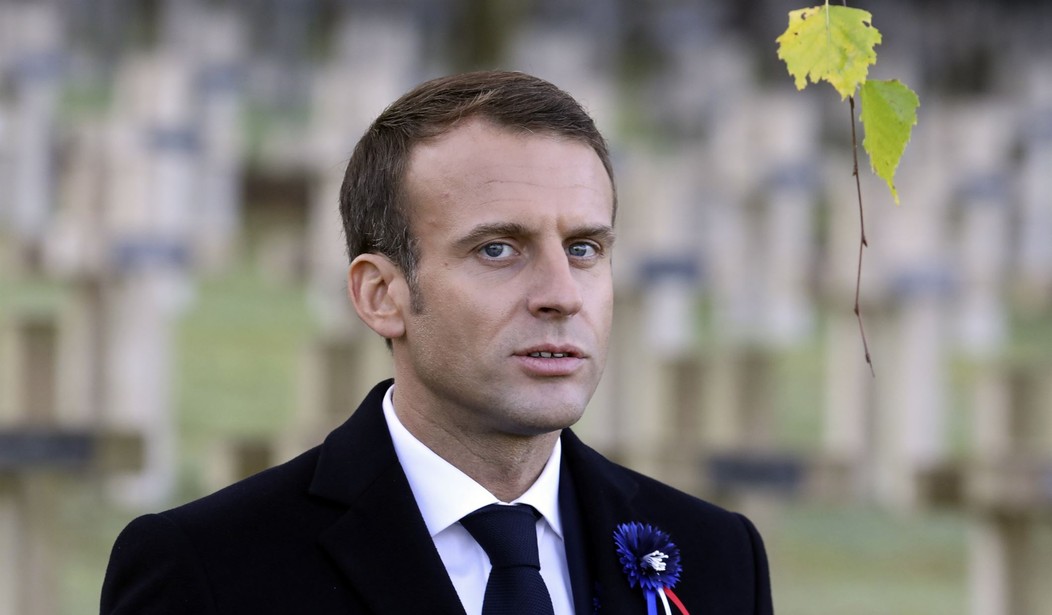Russia’s latest offer of humanitarian corridors for Ukrainian civilians drew scoffs not just from the government in Kyiv but across the continent. Vladimir Putin’s forces keep violating cease-fire agreements to evacuate civilians from cities under Russian attack, but Putin offered some new corridors to Ukrainians.
Want to guess where they lead?
Ukraine dismissed Russian promises to let civilians flee its forces’ assault on major cities Monday after Moscow offered humanitarian corridors that led to Russia itself or its close ally Belarus.
Russia announced a cease-fire and said it was offering routes for safe passage out of the capital Kyiv, the southern port city of Mariupol, and hard-hit Kharkiv and Sumy in the northeast. But it set out clearly defined paths for anyone seeking to escape that Ukraine said were unacceptable and an effort to manipulate world leaders. …
Three of the six proposed routes led to either Russia or Belarus, from where Russian forces have launched parts of their campaign.
Rejecting the offer to have civilians escape straight into the territory of countries behind the assault on their homes, Ukraine’s vice prime minister, Iryna Vereshchuk, said that her country had sent a counter-proposal that would allow residents from Kyiv and Kharkiv to flee to western Ukraine.
“Our people won’t go to Belarus and to Russia,” she told a news briefing in the heavily-fortified capital, branding the proposal “unacceptable” and saying that Russia was seeking to manipulate Macron’s sincere desire to help.
Zelenskyy adviser Mykhailo Podolyak dismissed the proposals as “propaganda.”
The offer infuriated Emmanuel Macron, who had tried to negotiate for the humanitarian corridors in good faith. Macron dispensed with the careful diplomacy he has used with Putin to maintain that line of communication and called the Russian tyrant a hypocrite:
“I don’t know many Ukrainians who want to seek refuge in Russia. That’s hypocrisy,” French President Emmanuel Macron said in an interview on French news broadcaster LCI.
“Humanitarian actors need to be able to intervene so we must get full cease-fires when they intervene,” Macron said. The issue won’t be solved via “corridors which are being threatened right away (by Russia),” he added.
The Russian task force said the new pledge for humanitarian corridors was announced at the request Macron, who spoke to Putin on Sunday. Macron’s office said he asked for a broader end to military operations in Ukraine and protections for civilians.
Even beyond the hypocrisy, it’s a curious offer in more than one way. Tactically, it makes almost no sense at all for the Russians to offer up corridors to their rear when they are already unable to move forward on the same or similar roads. Put more bluntly, they can’t even protect their own lines of communication. Now they want to claim that they will transmit tens of thousands or hundreds of thousands of refugees back to Russia or Belarus — and do what with them? All that will do is snarl their military logistics even further than they already are.
Politically it’s a head-scratcher too. What happens after the refugees arrive? Russia can’t even provision its own troops, let alone a sudden influx of civilian refugees. Having thousands of refugees starving in concentration camps won’t do much for Putin’s international relations.
On the other hand, the propaganda value of such refugees could be enormous … if Putin could capitalize on it. An influx of ethnic Ukrainians could help Putin sell his ‘de-Nazification’ line to domestic audiences, assuming his domestic audiences are buying a word Putin says these days. Outlawing war coverage that includes the word “war” makes it difficult to establish the kind of trust necessary that sells propaganda, let alone ignore the other-worldliness of attempting to ban information in an Age of Democratized Information. As Carole Cadwalladr writes, it’s a throwback to the Soviet era, and Russians saw through that too:
In Russia on Friday, Vladimir Putin, a man who is now scared of his own shadow, took the extraordinary step of attempting to outlaw information. He banned Facebook. He shut down Twitter. He passed a new law that declares journalism a criminal offence: any journalist found to have published “fake news” on the war in Ukraine now faces up to 15 years in prison.
It is, like so many things in the last week, incredible, unprecedented, horrifying – but more importantly it’s also desperate and absurd. Because in 2022 you can’t ban information. It’s like trying to ban oxygen. It’s the kind of move that one of his grey-faced Soviet predecessors might have made. It’s as modern and up-to-date as a typewriter. Only a fool would make predictions right now, but here’s one anyway: it proves that Putin, the founding father of what’s come to be known as “information war”, just lost the information war.
Anything can and may happen. But having dominated the dark arts of disinformation for the last eight years, the Kremlin’s invincible mastery of the information space has been exposed as a sham, a fiction, another lie. Putin has put on the equivalent of a pair of bell-bottoms and is dad-dancing across the internet. Meanwhile Ukrainian president Volodymyr Zelenskiy isn’t just commanding his armed forces: he’s commanding TikTok, Instagram, Twitter, Telegram. He’s simultaneously available across all social media platforms – hybrid warfare’s first hybrid leader.
To put it another way: Putin likes to pose on horses to look manly. Zelensky doesn’t need to pose. And even Putin’s unfortunate subjects may be starting to realize it. Certainly the rest of us should by now.








Join the conversation as a VIP Member